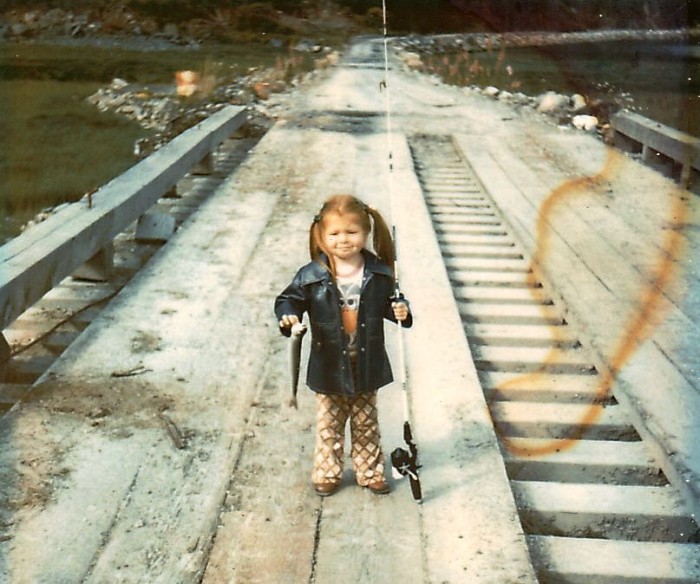Plastic Over Paper More Eco-Friendly? Sometimes, Yes.
We must move past this Us vs. Them mindset to effectively work together to provide a world and economy we can all live with, in and for. We need to move past “our stance is” thinking into “our mutual benefit is” thinking.
First of all, I want to note that I’m like every other person out there. What I mean is that if someone is all self-righteous, fundamentalist, finger-pointing at me with their higher-than-thou attitude, no matter what their mission my innate reaction is to rebel. Even when I’m a rebel with the same damn cause!
I consider myself an environmentalist, an animal-lover, a human rights supporter, a woman who gives a shit.
So I know damn well how other people think—and feel—that aren’t anywhere near committed to fully Walking the Talk when tree-hugging hippies get all in our Face(book) with idealistic rantings. (There’s a nifty little FB function called ‘filter’ when we finally get fed up enough.)
And the reality is that we are a world of consumers and as long as that is our experience our economy won’t shut down and employment rates won’t dwindle. New jobs will emerge in different industries or the same industries only with more earth-responsible companies—“A Compassionate Economy”—maybe even new jobs closer to home where we actually need it and not Made in China.
Most of us love this planet, which is great since it’s the only one we can live on so far. And we don’t want to see our children’s children growing third eyes from the GMO diet we seem destined to leave them nibbling on. (I don’t mean the cool/hippy-dippy metaphysical all-seeing-all-knowing third eye, but the creepy extra-socket kind.)
That may seem dramatic and there are no guarantees our grandchildren will don that extra sensory unit—though it could come in handy by then—but third generation lab rats have shown tumours from their grandparents’ GMO diets.
GMO (genetically modified organism) was invented as a means to feed the masses—or, more likely, to line the pockets of greedy corporations and seedy politicians passing laws in their favour—which makes sense on the surface.
The problem is that GMO contamination, along with frickin’ fracking, is polluting the earth’s surface. And its lakes and streams and oceans. Sure the oceans are massive but since we already see the more obvious effects of other man-made catastrophes (oil spills, plastic islands, Fukoshima), this is affecting us now and will continue to amass unless we collectively change the course.
We are not running out of land. There is so much land that the entire earth’s population would fit in the City of Los Angeles (Albeit that would be a tad cozy, but I digress.) But we are running out of agriculturally feasible land. We are simply not managing our resources and well-fare well, which is why Monsanto is successful at selling their we-must-feed-the-masses fear-based propaganda.
We don’t need to mow down all the trees to supply agricultural lands. We don’t need genetically modified foods. We need to be open to better ideas about how to supply (organic) food at affordable prices. If students at a school can develop a cost-effective hydroponic, organic garden system that requires minimal space—they did¹—then big biz can offer the same, and supply local employment to boot.
And that’s also not to say we need terminate all lumberjack endeavours. There’s still need of wood products—less environmentally damaging, if with minimal processing, than new plastic production—and I hazard to write that with environmentally and sustainable logging practices, we can keep the logging industry employed. (My daddy was a logger and a damn fine man.)
And what about that “plastic is better than paper thing” I mentioned?
Well, here’s the thing. It depends.
There is some debate that paper products are more environmentally damaging. According to this:
“The production of paper consumes much more resources, and produces much more waste than plastic, even if the recycling is taken into account². Of course, most likely a reusable cotton bag will be better than either, but we need to calculate it’s CEII to be sure.” (CEII: Composite Environment Impact Index.)
Also, based on economy of scale, a paper product shipped by petrol-consuming freight trucks from Florida to Western Canada may have a higher net negative affect on the environment than that plastic bottle of Fiji H2O arriving by ocean-liner. And buying whole coconuts vs. manufactured/processed/packaged coconut water coming from the same place may reduce the net negative effect. The less processed the better for us, anyway.
I assume you give a shit or you wouldn’t be reading this. It saddens me when one doesn’t care at all, or are too pissed off at constantly being pissed on by well-meaning but lousy-inspiring eco-enthusiasts. I don’t blame them. (Either side.)
But caring a little is better than not caring at all.
And I believe doing a little is better than doing nothing. No one wants to have a finger waved at them. So this is for those of us who want to do a little better no matter where we stand.
This is for the vigilante gods and goddesses who envision a utopian world or just those of us who accept the inconvenient truth and are ready to commit to doing something, anything, extra now to contribute to a better future.
So let’s boil it down to the basics of what we can do from wherever we’re at in the do-good scale.
1) Change our thought habits. Dare to care. Ask questions, learn.
2) Refuse/reduce: Buy less stuff. The stuff we do buy, try to obtain used and/or from close to home whenever possible. Think 100 mile radius when possible.
3) Reuse/recycle. Avoid the no-no’s: bad (for the earth) transport and petroleum manufactured products.
4) Share our success stories and new discoveries.
5) Do. Not. Finger-Wag—Instead: Inspire! It’s not about all or nothing, it’s about progress. Teach lovingly.
For a list of 31 specific things to consider incorporating check out this list. For the rednecks, you’ll love #14.
And since I certainly don’t know it all, I welcome input from smarty-pants earth-savers of any field, school or science. It’s not a competition. This is us working together to not have a world with weird-looking, apocalyptic, three-eyed children. (My apologies to anyone with extra eyeballs.)
~
¹Source here.
²Source here.
Relephant Reads:
The Colorado Democracy Wars. ~ Cliff Willmeng
Love this one (took me a moment!) A comprehensive list of Good Reasons to eat GMOs & learn to love Monsanto & friends.
Love elephant and want to go steady?
Sign up for our (curated) daily and weekly newsletters!
Editor: Catherine Monkman
Photo: Author’s Own


 Share on bsky
Share on bsky





Read 2 comments and reply